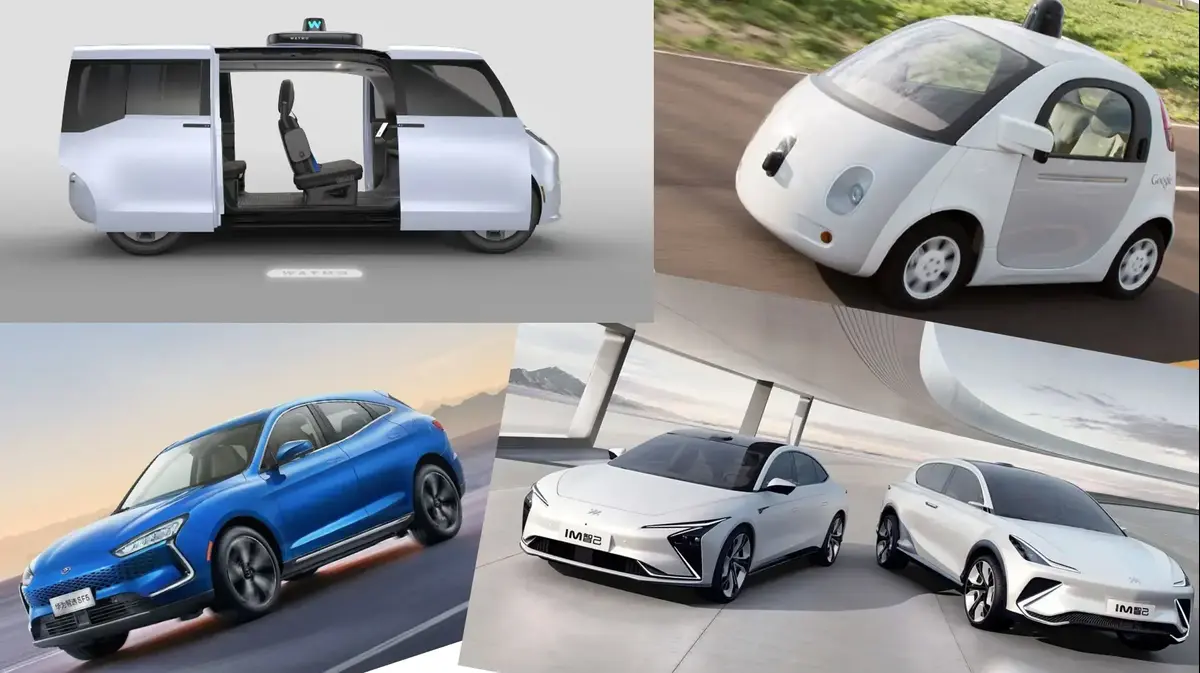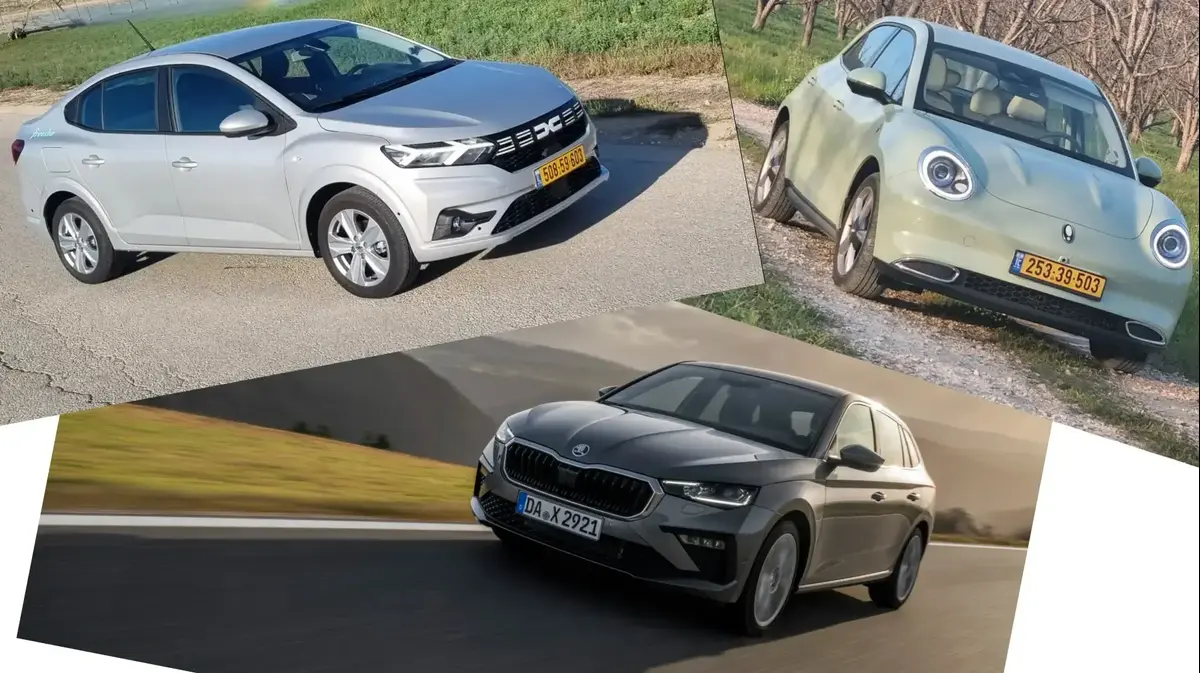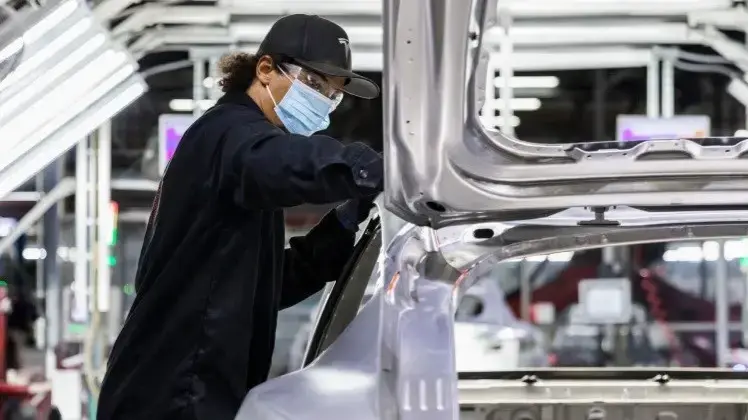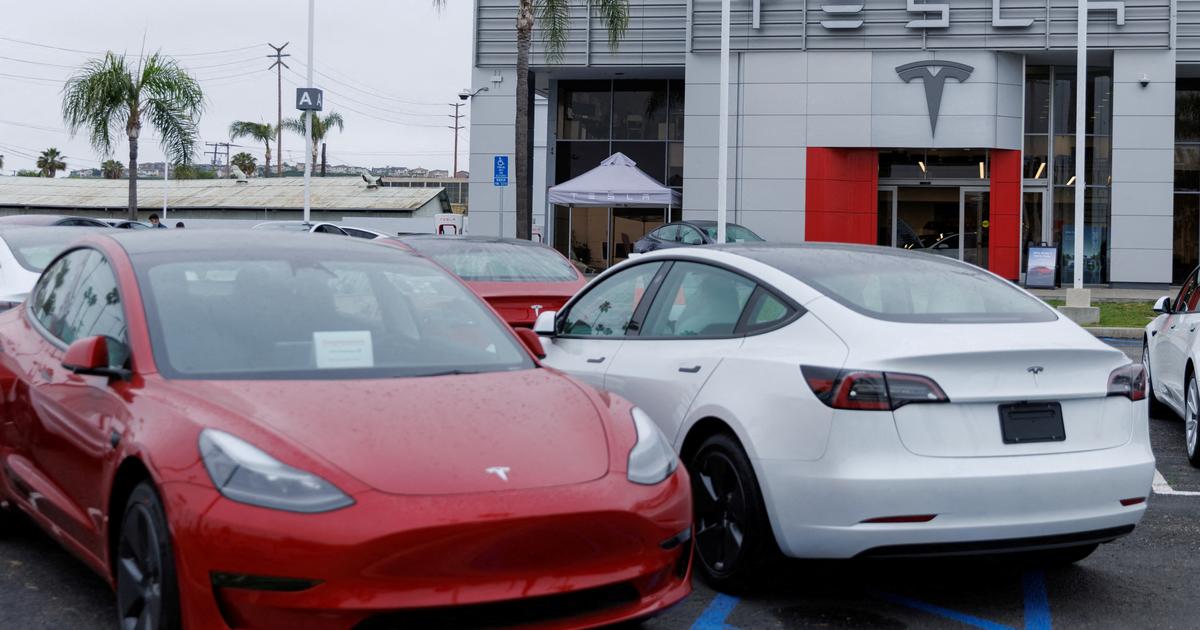New beginnings: what are the tech manufacturers looking for in cars?
Apple, Baidu, Sony, Xiaomi, Huawei - this is only a partial list of companies that we all know mainly in the field of technology, computers and cell phones but want to start producing cars
Kenan Cohen
25/09/2022
Sunday, September 25, 2022, 12:19 Updated: 12:49
Share on Facebook
Share on WhatsApp
Share on Twitter
Share by email
Share in general
Comments
Comments
As the car becomes more sophisticated and computerized, more and more tech companies see its potential (photo: manufacturer website)
Rosh Hashanah is the holiday where there is always a good opportunity to ask ourselves what we would like to do differently?
What new thing can change our lives this time?
When it comes to huge companies with turnovers of billions of dollars, these decisions are a little more complicated than to stop the sugary drinks at the family table.
Certainly when it comes to decisions whose meaning is entering a completely new field where they lack any experience and the competitors in front of them have been doing it for decades.
More than that, when a laptop company decides to also produce game consoles or VR glasses, of course it's a different product, but one that still doesn't throw it into a completely different world of uses.
But when a manufacturer of cell phones or game consoles decides that it will also build cars, come on, when was the last time you checked how your PlayStation survived after going over a bumpy road at 90 km/h, in the rain.
And yet, several such companies have stated in recent years that car production is definitely an avenue to which they direct resources and treat it as a real possibility for their growth in the coming years.
In this article we will get to know some of them, we will ask and also try to answer why they do it and maybe also what their real intention is.
Google toyed with the idea until it decided to leave the production to someone else (photo: manufacturer website)
What are you looking for here?
So first of all about motivation.
The amounts generated by the automobile industry may sound like absolutely fantastic numbers to you, but you have to remember on the other hand that despite everything they try to sell you, it is still a very "heavy" industry.
With huge factories, complicated logistics, monstrous production lines, suppliers, sub-suppliers, sub-suppliers to sub-suppliers, an unimaginable amount of components that go into a car coming off the assembly line.
How many components?
Depending on how you count, if you follow the simple method you can talk about about 2,000 parts, but if you don't count "wipers" as one part, but also its components, that is: wiper arm, wiper shaft, return spring, rubber guide, guide clamp Rubber for the arm, rubber, wiper motor, motor connector for the wiper arm - we will already be in the 30 thousand sector and north - and wipers is really a simple example.
So why are there companies eager to enter the industry for all its complexity?
The answer is that as the cars become more advanced and the production procedures simpler, or at least those in which it is possible to switch to a model that turns the production of the car itself into a contracting job (like Apple does not produce the iPhone itself, but its subcontractor) - then the ability of those technology companies to manifest their expertise and offer increasing added value.
More in Walla!
From iPhone to electric car: Foxconn's big statement
To the full article
The automobile industry is still a very "heavy" industry and much more complex than the manufacturing of electronic devices (Photo: Keinan Cohen)
The second process that "opens up" the automotive world to these companies is the sweeping transition to the use of car manufacturing platforms.
That means using one base on which any vehicle can be built with different adjustments.
From a small city car, to a family car, crossover to a large luxury or sports car.
In this way, those technology companies no longer have to go through the arduous course of obstacles on the way, but only to characterize the final product.
And this process itself stems from another very big change that the automotive industry is going through and that is the transition to electric drive.
The ability to get rid of this thing called "internal combustion engine" with all its mechanical complexity, its planning, testing, development, production if they decide to do it themselves.
And if they choose to purchase one of the ready-made, there is still the need to maintain it, meet air pollution standards, standards.
His gradual departure from the stage is definitely a significant shortcut for these companies.
Google is already putting its operating systems into new cars, Volvo is the first to use it (Photo: Keinan Cohen)
And while cars are becoming less and less "machines" and more and more smart, certainly those that revolve around the issue of electricity and optimal energy consumption, suddenly the manufacturers of electronic devices such as cell phones that took the story of battery utilization to the extreme and led this industry, have a lot to offer.
When the car no longer sells a driving experience, but an entertainment experience, the companies that dominate the content industry have a lot of interest in catching your eyes in this dead time of the drive.
And what about companies that want to sell you advertising time or products?
Or know the location and the purpose of your trip to inform the stores in the mall that Mrs. Levy is from Kfar Saba regarding clothes for the holiday and will arrive within 15 minutes for shopping.
The other angle in which these companies see an opportunity to make a lot of money is the autonomous world, where the model is not the sale of the car and probably not the car usage fees either - but the ability of its operator to mine huge amounts of information about the users and of course turn the passengers themselves into "
Some of these manufacturers are also not really in a hurry to declare that they are going to produce the car themselves from bumper to bumper.
For them, as those who grew up in the new and flexible world of production, there is no problem leaving the construction itself to someone else and just implanting its operating system in the car, in fact, we may also see a production line that serves several different companies that use the same platform, only with different adjustments in the final production .
A skateboard platform like that of the Israeli REE is one of the solutions (photo: PR)
The car manufacturers at this stage do not present a uniform front in the perception of those companies as a "threat" to their model.
Some doubt the technology companies' ability to translate this background into the real world, where the product has to live and function flawlessly even when the temperature outside is minus 20 degrees or 40 degrees above zero.
During a sandstorm, in extreme humidity conditions or just intensive use, if something goes wrong, it doesn't mean a lost wrist and document, it happens at 120 km/h on highway 6.
Some of them are definitely examining this new reality and examining the possibility of harnessing their abilities and knowledge in the field The production with the benefits that the technological companies bring with them in a way of combining the strengths of each of them. The problem: they have difficulty settling a matter that sounds small, but behind it hides economic meanings - whose car is it? That is, which symbol will be on the front of it and to whom will its success be attributed, or in the other case - failure
So who are the companies that want to attach their name to the wheels and in which motor court do they play?
Soon also with cars?
Xiaomi store (Photo: AP)
Xiaomi
The Chinese mobile phone and technology giant Xiaomi is one of the main players in the field of entering the automotive world.
How central?
She declared an investment of 10 billion dollars in the field in the next decade.
According to the manufacturer's statements, its goal is to introduce a car with certain autonomous capabilities in 2024, the car itself will be an electric sedan with 4 seats.
Surprisingly, despite the complexity, the company intends to produce it itself in its factories.
This is despite the fact that in the past there were rumors and estimates of cooperation with Chinese manufacturers such as Great Wall or BAIC.
The car will use a lidar system (laser radar) and a self-developed radar from Xiaomi, which it has already installed on test cars and prototypes.
Sony's car, cooperation with Honda for production (photo: manufacturer's website)
Sony
The Japanese manufacturer known mainly in the worlds of entertainment is one of the main contenders for the first title to cross the border between a technology company and a car manufacturer.
For this purpose, it established a subsidiary company called Sony Mobility, which currently has two models on the table that it intends to introduce.
The Vision S 02 is an electric crossover with 536 hp and the Vision S 01 is a 4-door coupe that has been in an advanced development process since 2020. According to the latest reports, the company will team up with another Japanese manufacturer - Honda - to produce the cars, but not yet It is clear under which name they will appear. The obvious bet at the moment is the establishment of a new joint company.
Because what initially appeared to be an exploration and matured into a real agreement is between Sony and the car manufacturer Honda, who will team up for the purpose of this venture.
Alibaba's duo under the MI Motors brand (photo: manufacturer's website)
With a huge local Chinese market and being one of the largest internet trading companies in the world, Alibaba is also keeping an eye on the streetcar market.
Whoever will be responsible for the actual production of the cars may with a very high level of certainty be the huge SAIC corporation (in Israel we know one of its arms as MG) and the two will establish a joint company called IM Motors.
Currently, the company has two cars that are supposed to arrive in the first stage of production, the first of which is a large and luxurious sedan called IM L7, with the numbers around it talking about 536 hp from two electric motors and acceleration to 100 km/h in 3.9 seconds in the top version and 340 hp s in the rear-wheel drive version. The 93 kWh battery allows the manufacturer to present a range of 600 km, but this is under the NEDC standard, which has long since been replaced, so it cannot be considered a particularly reliable number.
An interesting feature of this car is its ability to charge wirelessly using a suitable pad.
The second model, which has not yet been officially presented, is the large LS7 crossover which has not yet been officially presented but should be based on the L7 and offer similar features.
They call the car brand Foxtron (photo: manufacturer's website)
Foxtron
For those who don't know, Foxconn is actually responsible for building your iPhone, but not only that, it also serves as a construction contractor for other electronic products for other giant companies.
The entry of the Taiwanese company into the worlds of automobiles is made through its subsidiary called Foxtron, here the road passes while cooperating with another car manufacturer from Taiwan called Yulon Motors.
From its production line, which should be in Ohio, the United States, three vehicles are supposed to come off in the first phase.
A crossover, a bus that guarantees a range of 400 km between charges and a sedan whose design is signed by the Pininfarina company and the talk is about a range of 640 km.
Foxtron electric city bus (photo: manufacturer's website)
Dark
For about a decade, Apple has been spreading rumors and denials about its car project.
Within the company it is known as the "Titan" project and in the best tradition of Apple, the details about the program are kept very secret.
And when the company itself minimizes the details, the rumors and speculations become completely wild.
Including those who talk about an electric vehicle (OK, makes sense), an autonomous vehicle (well, let's say), which will have no steering wheel and pedals and even no windows because it will all have VR technology inside (uh, sure) and will be launched in 2025 (caution, high-level engraving) .
The one who should provide the platform for all this beauty is the electric vehicle startup "Kano".
The American manufacturer and Apple were in talks during 2020 in order to test the capability of its electric vehicle platform for future use by Apple.
This is a "skateboard" type platform where the floor of the vehicle is actually also the battery compartment and the motors are integrated in the four wheels, similar to what the Israeli company REE does.
CEO of Volvo and President of Baidu at the announcement of the cooperation (photo: manufacturer's website)
in Ido
The Chinese government, which makes sure that its citizens are not exposed to free information from which they will get bad ideas about freedom and individual rights, does this in part by using a closed internet system.
In this system, the most common search engine or its "Google" is called Baidu and as of 2021 the company is on a journey to expand its wingspan from the worlds of software to the electric vehicle market as well.
Her partner in this journey is the car manufacturer Geely, when the name of the joint venture of the two is called jidu.
The division of labor is clear, Baidu contributes the smart driving technologies and in the future also the autonomous one (it has been in the field since 2017) and the maps and Geely takes care of the technical aspect of the vehicles themselves.
Baidu has an advantage over other tech companies in the development of autonomous driving with the operation of several dozen robotic taxis under the "Apollo" project in the city of Beijing.
Huawei, already with its foot on the gas together with Ceres (photo: manufacturer's website)
wow
Another Chinese mobile and technology giant that is eyeing the automotive field is Huawei.
Its strong ties with the car manufacturer Ceres allowed it to be ahead of the other companies in a certain sense by having already entered the market with a vehicle, this is the SF5 marketed in China through the brand's stores alongside its phones and other accessories.
The car demonstrates the cooperation model in which the car manufacturer is responsible for the "hardware" of the vehicle itself, while Huawei is responsible for the "software" in this case the car's operating system from the multimedia to the energy system management computer.
Volvo XC90 with Didi's radar system on trial (photo: manufacturer's website)
Didi
Another huge Chinese company entering the game is Didi.
The name may not be familiar to many, but in China it is a huge monster that actually embraces the cooperative transportation and car rental in China.
As such, it dominates the technological aspect and the information about the trips that its approximately 500 million customers make in taxis, shared vehicles, rental vehicles and more.
After signing partnerships with Renault-Nissan, installing its systems on Volvo cars and others, its partner in the car venture is BYD, which recently entered Israel.
The first car of this collaboration has already been presented - it is the D1, a compact and electric hatchback car, and it also has plans for a crossover that will be launched during 2023. Apparently, a significant part of the production will be directed to "internal" use, that is, the company will provide itself with the cars for the transportation services that it gives
Google's robo-taxi will be produced by a subsidiary of Geely (photo: manufacturer's website)
One of the oldest to have fun with this story of "we know everything, what it is to make a car" is Google.
But she learned the hard way that building a car is not about sitting someone down on a few lines of code and running tests, but that it is a very complicated story.
A few years ago the company changed its direction and instead of producing the "Google car" it simply partners with the Wimo venture of autonomous driving with the Chinese manufacturer Geely and the two will offer a vehicle that will provide autonomous transportation services (so-called "robo-taxi") in dedicated cars of one of the subsidiary companies Jilly's - mentioned.
vehicle
car news
Tags
Xiaomi
Dark
Google
wow
Foxconn
in Ido
Ali Baba












